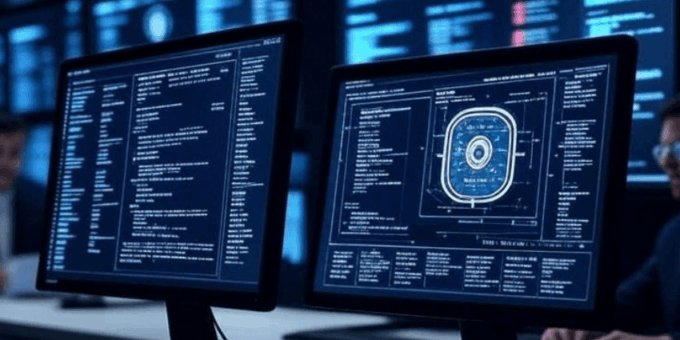
In today’s digital era, working remotely has become more common than ever. While remote work offers flexibility and convenience, it also opens doors to potential cyber threats. From phishing attacks to data breaches, hackers are constantly looking for vulnerabilities to exploit. That’s why understanding Cybersecurity for Remote Workers is essential to Stay Safe Online and protect sensitive company data.
Why Cybersecurity Matters for Remote Workers
Remote workers often use personal devices and home networks that lack enterprise-grade security. Without proper protection, these systems can become easy targets for hackers. According to Forbes, over 60% of remote employees face at least one cybersecurity threat each year. Implementing strong online security practices helps prevent identity theft, data loss, and unauthorized access.
1. Use Strong Passwords and Multi-Factor Authentication (MFA)
Weak passwords are one of the biggest security risks. Create passwords that are long, unique, and include letters, numbers, and special symbols. Avoid using the same password across multiple accounts. To add an extra layer of protection, enable multi-factor authentication (MFA) on all your important accounts. MFA requires verification through a secondary device or app, making it much harder for cybercriminals to gain access.
Tools like LastPass or 1Password can help manage and store complex passwords securely.
2. Secure Your Home Wi-Fi Network
Your home Wi-Fi is the gateway to your online activity. Make sure your router is password-protected and uses WPA3 encryption, the latest standard for wireless security. Change the default network name (SSID) and avoid sharing your Wi-Fi credentials publicly. Regularly update your router’s firmware to patch any security vulnerabilities.
According to Cisco, securing your home network is one of the most effective ways to reduce cyber threats.
3. Use a Virtual Private Network (VPN)
When working remotely, a VPN encrypts your internet connection, protecting your data from prying eyes. It also hides your IP address, making it difficult for hackers to track your activity. Choose a reliable VPN provider like NordVPN or ExpressVPN for better security and speed.
Using a VPN is especially important when connecting to public Wi-Fi networks in cafes, hotels, or airports. This simple step ensures that sensitive business information remains private.
4. Keep Software and Devices Updated
Outdated software is a common entry point for cyber attacks. Regularly update your operating system, browsers, and antivirus programs to the latest versions. Turn on automatic updates whenever possible to stay protected from new threats. Cybersecurity experts from Kaspersky emphasize that timely updates close security loopholes and keep devices safe from malware.
5. Be Aware of Phishing Scams
Phishing emails are one of the most common methods hackers use to trick remote workers. They often look like legitimate messages from colleagues or trusted companies but contain malicious links or attachments. Always double-check email addresses and avoid clicking on suspicious links. Report phishing attempts to your IT department immediately.
Learn more about recognizing phishing attempts on FTC’s official phishing guide.
6. Encrypt Your Files and Use Cloud Storage Safely
Encryption protects your files by turning them into unreadable data without the correct decryption key. Many cloud platforms like Google Workspace and Dropbox offer built-in encryption to safeguard your data. Avoid storing sensitive information on unsecured devices or drives.
Additionally, enable two-step verification on your cloud accounts for added protection against unauthorized access.
7. Use Reliable Security Software
Investing in premium antivirus software provides real-time protection against malware, ransomware, and spyware. Popular options include Bitdefender, McAfee, and Avast. These tools continuously scan your device and detect threats before they cause damage.
8. Avoid Using Public Wi-Fi Without Protection
Public Wi-Fi is convenient but extremely risky. Cybercriminals often set up fake hotspots to intercept your personal data. If you must use public Wi-Fi, always connect through a VPN. Otherwise, stick to mobile data or personal hotspots for secure browsing.
9. Regularly Back Up Your Data
Data loss can happen anytime — due to hacking, hardware failure, or accidental deletion. To prevent permanent loss, schedule automatic backups to cloud storage or an external hard drive. Platforms like Backblaze and iCloud provide secure and easy backup options for remote professionals.
10. Stay Educated on Cybersecurity Trends
Cyber threats evolve constantly. Keep learning about new scams, security tools, and protection methods. Subscribe to reputable cybersecurity blogs like Kaspersky Blog or Cybersecurity Dive to stay informed. Awareness is your first line of defense.
Final Thoughts: Stay Safe Online and Work Smarter
As remote work continues to grow, staying safe online is no longer optional—it’s a responsibility. By following these Cybersecurity tips and building strong digital habits, remote workers can protect their data, maintain productivity, and enjoy peace of mind. Implementing these simple but powerful Tips to Stay Safe Online ensures you’re always one step ahead of cybercriminals.
To learn more about secure work-from-home strategies, visit Remote Work Safety Tips and Best Cybersecurity Tools.
Disclaimer: This content is for educational purposes only. Always consult with IT security experts before implementing new cybersecurity solutions.